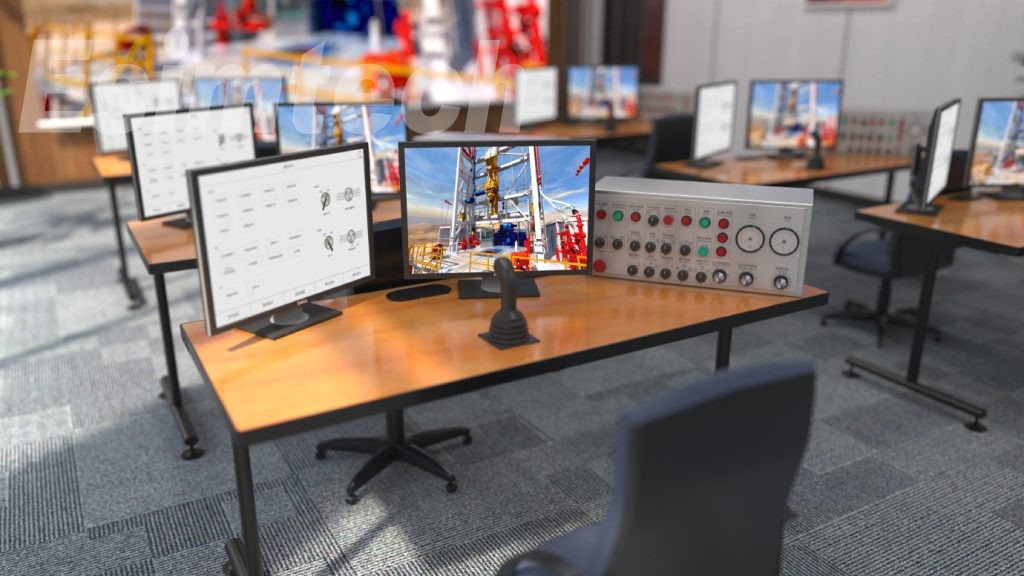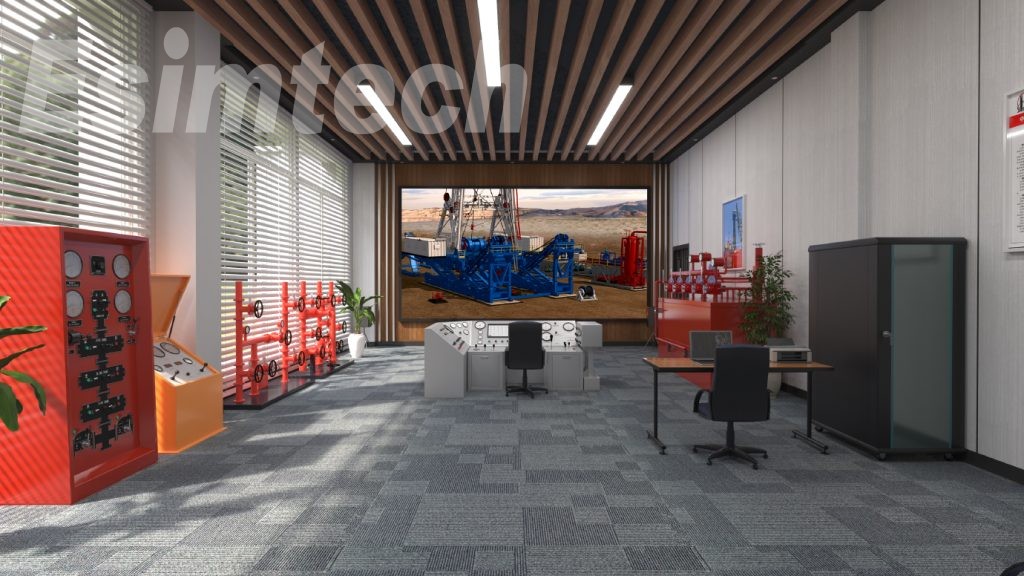The use of petroleum simulators is crucial in the oil and gas industry as they allow organizations to simulate and model complex geological, engineering, and operational scenarios that are challenging or impossible to replicate in real-world settings.
Importance of Petroleum Simulators:
Petroleum simulators provide engineers and operators with a better understanding of oil and gas reservoir behavior, allowing them to predict production and refining outcomes and optimize exploration and production activities using simulation software. These oil and gas simulators help in reducing exploration and production costs by identifying and minimizing potential risks, improving operational efficiency, and maximizing resource recovery. Additionally, simulators facilitate testing and development of new technologies and processes, fostering industry innovation and competitiveness.

Types of Petroleum Simulators:
The most common types of petroleum simulators include reservoir simulators, wellbore simulators, process simulators, and integrated asset simulators. Each type has its own capabilities and applications.
Reservoir Simulators:
Reservoir simulators are programs that simulate the behavior of oil and gas reservoirs by considering factors such as rock characteristics, fluid properties, and fluid flow. They are used to forecast reservoir performance, optimize production strategies, and assess the impact of different production scenarios. Reservoir simulators are particularly effective in evaluating unconventional reservoirs like shale gas and tight oil deposits, where complex geology and reservoir characteristics pose challenges in modeling and decision-making.
Wellbore Simulators:
Wellbore simulators model the behavior of oil and gas wells, taking into account fluid generation, gas flow, and pressure variations. They are employed to enhance production efficiency, optimize well design, and predict well performance. Wellbore simulators are especially valuable in improving output from horizontal wells commonly used in unconventional reservoirs, which often require hydraulic fracturing for increased production. These simulators aid in optimizing hydraulic fracturing operations and maximizing output rates.
Process Simulators:
Process simulators are used to model the behavior of refining processes, incorporating elements such as distillation, cracking, and other chemical reactions. They are applied in refineries to optimize operations, minimize energy consumption, and improve product quality. Process simulators are particularly useful in assessing the impact of changes in feedstock composition on refining processes, enabling refineries to optimize operations to accommodate variations in feedstock composition.
Integrated Asset Simulators:
Integrated asset simulators combine reservoir, wellbore, and process modeling into a single model. These simulators allow companies to optimize the entire value chain, from exploration to refining. Integrated asset simulators contribute to increased resource recovery, reduced operational costs, and optimized production rates. They are especially valuable in assessing the impact of production decisions across the entire value chain, optimizing manufacturing and refining activities, and enhancing profitability and resource recovery.

Benefits of Petroleum Simulators:
Improved Reservoir Characterization: Petroleum simulators enhance reservoir characterization by simulating reservoir behavior based on various parameters. This reduces uncertainty in reservoir characterization, leading to better resource estimation, efficient drilling and completion operations, and lower exploration and production risks.
Optimized Production Rates: Simulators enable the optimization of production rates by modeling wellbore behavior. This optimization improves resource recovery, enhances reservoir management, and reduces operating costs.
Reduced Operating Costs: Integrated asset simulators help in cutting operating costs by optimizing the full value chain. These simulators increase resource recovery, decrease operational expenses, and optimize production rates, resulting in increased profitability, reduced environmental impact, and enhanced safety.
Increased Profitability: Economic simulators simulate the economic aspects of oil and gas production, such as project costs, cash flow, and profitability. They help in examining the financial sustainability of projects and the influence of price fluctuations on economics, ultimately leading to increased profitability, improved financial performance, and enhanced flexibility for future investments.

In summary, petroleum simulators are invaluable tools in the oil and gas industry, enabling organizations to make informed decisions, improve operational performance, increase profitability, and gain a better understanding of complex geological and technical scenarios. By utilizing different types of simulators, engineers and operators can optimize reservoir performance, well design, refining processes, and the entire value chain, leading to more efficient and cost-effective operations.






Comments (0)